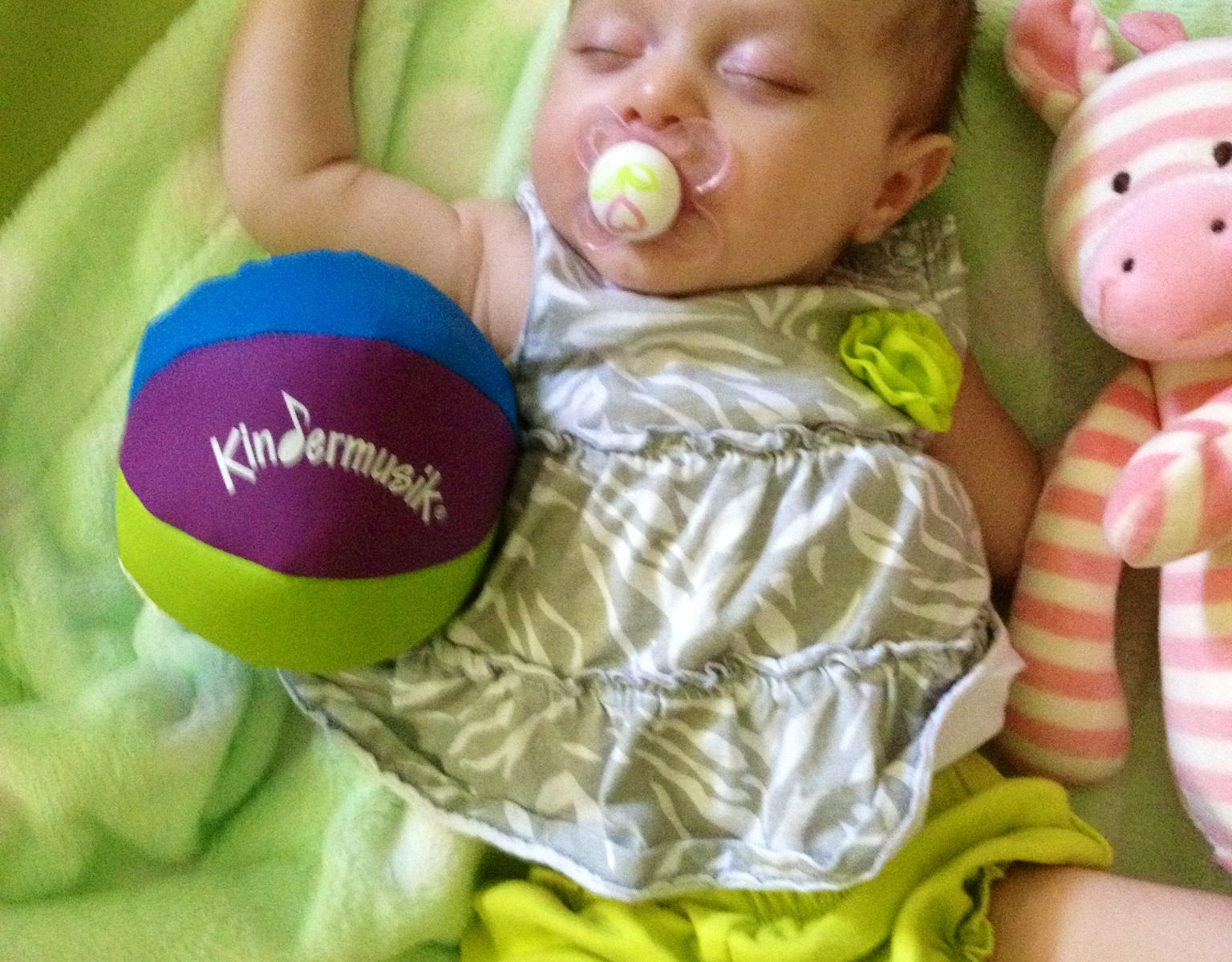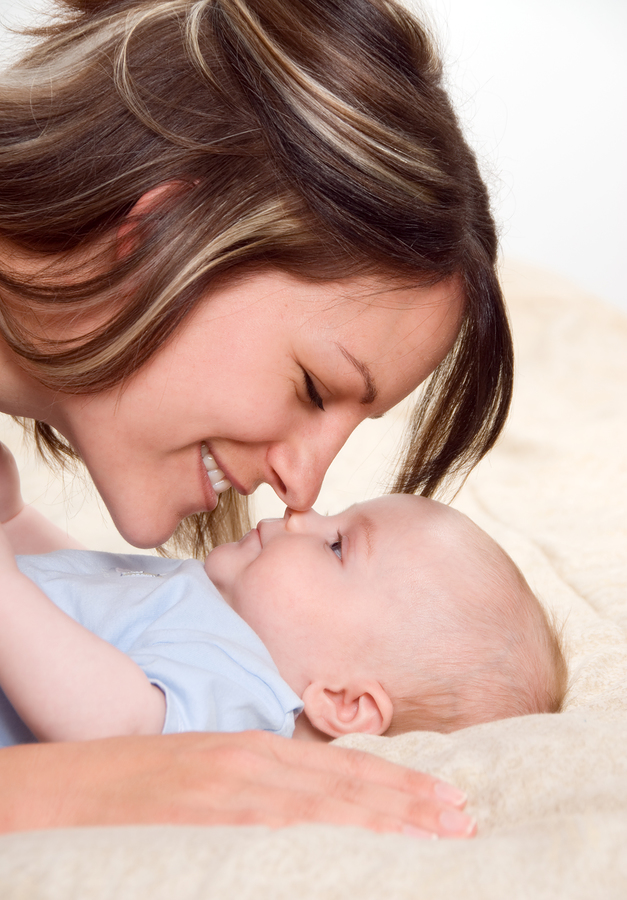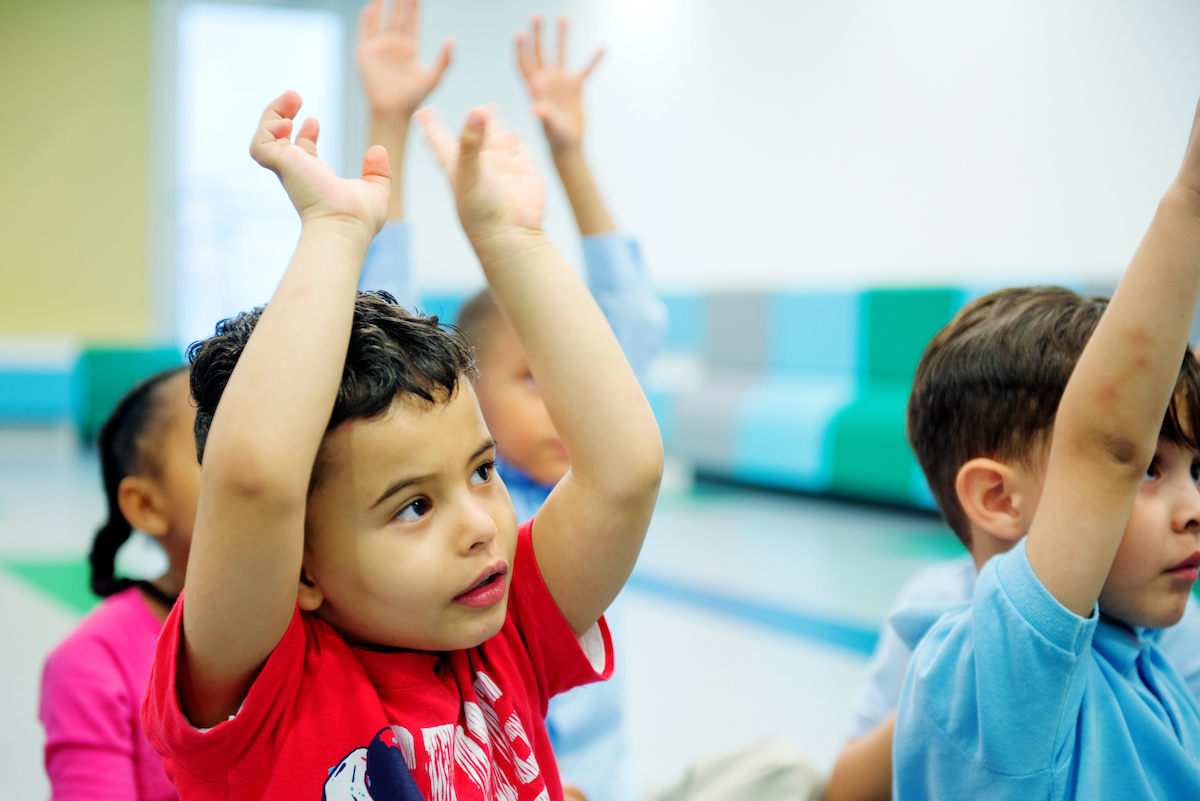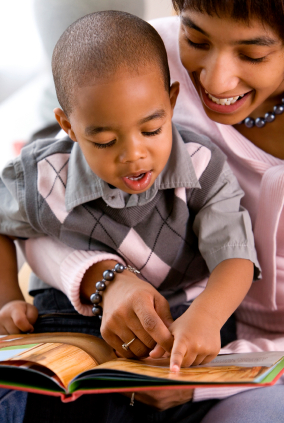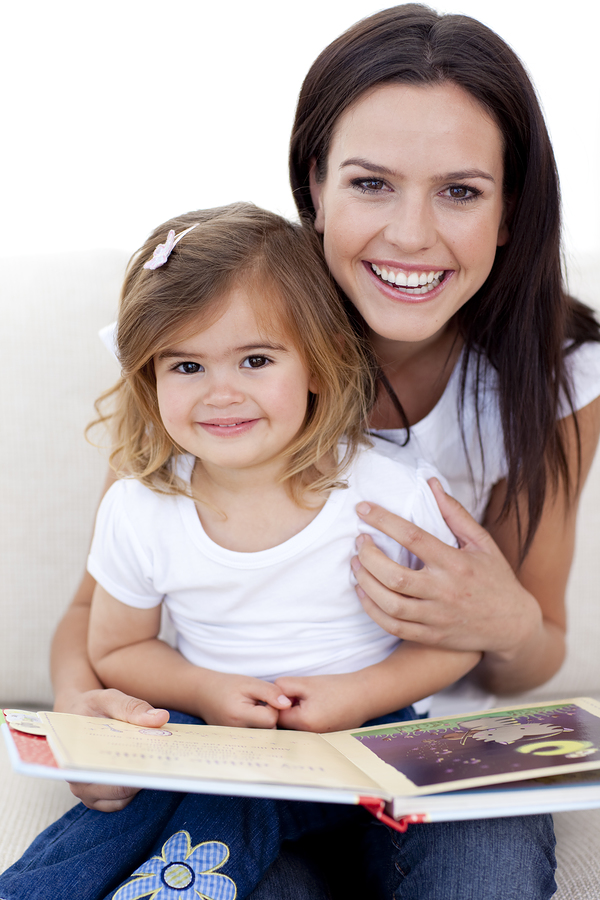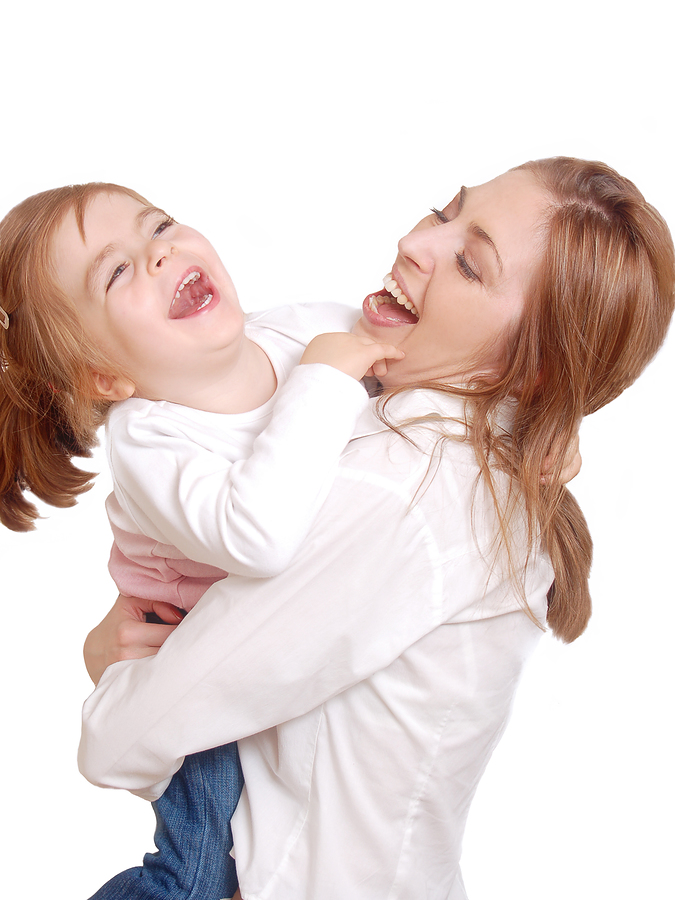It doesn’t take a parent long to figure it out. No baby or toddler or preschooler—or teenager for that matter!—comes with an owner’s manual. Sure, parents can Google, look to books and blogs, talk with other parents, and even ask Siri but there is no one-size-fits-all answer to parenting.
At Kindermusik, we don’t have all the parenting answers either. We do, however, have one thing that makes parenting just a little bit easier and unlocks a child’s potential: Musical learning! Here are just a few ways to use musical learning throughout the week in your everyday routines and rituals.
4 musical learning tips that make parenting a little bit easier
- Music helps children, even babies, learn how to relax. Relaxing is a learned
 behavior. A child’s world can be full of stimulating experiences, from practicing new skills like standing or walking to all the sights, sounds, and smells of a trip to the grocery store. Teaching children how to relax after a period of activity gives them time to recoup and get ready for what’s next. Listening to some quiet music, snuggling together, or gentle rocking can show children how to relax. By the way, children who know how to relax and self-soothe can be better sleepers!
behavior. A child’s world can be full of stimulating experiences, from practicing new skills like standing or walking to all the sights, sounds, and smells of a trip to the grocery store. Teaching children how to relax after a period of activity gives them time to recoup and get ready for what’s next. Listening to some quiet music, snuggling together, or gentle rocking can show children how to relax. By the way, children who know how to relax and self-soothe can be better sleepers! - Singing or humming a comforting song can soothe a child or ease anxiety and fears. From 2am feedings to boo-boos to thunderstorms to visits to the doctor, singing a soothing song can calm fears and comfort little ones in many different situations. The world’s most famous and revered nanny, Mary Poppins agrees. After all, she sang, “A spoonful of sugar helps the medicine go down.”
- Music can signal to your child it’s time to transition to something else. In our music classes for babies, toddlers, big kids, and families, we sing “instruments away, instruments away. It’s time to put our instruments away.” That tells every child that the instrument playing time is over and we are moving on to another activity. After a few times, children begin to understand and will put the instruments away (most of the time!). Try using that little song throughout the week to signal the end of bathtime, playtime, or even time to leave the park.
- Make a playlist of your child’s favorite music for your next road trip. Few children enjoy being strapped in their car seats for long periods of time. Music makes it easier. Create a playlist of your child’s favorite Kindermusik songs for the trip. Here are some of our favorites. Mix in your own favorites, too, for a family musical playlist.
New benefits of music on the cognitive development of children continue to be discovered by researchers. However, throughout the years generations upon generations of parents have used musical learning to help make parenting just a little bit easier. We invite you to come visit a Kindermusik class and discover for yourself a loving, welcoming community of families who are discovering the power of musical learning!

